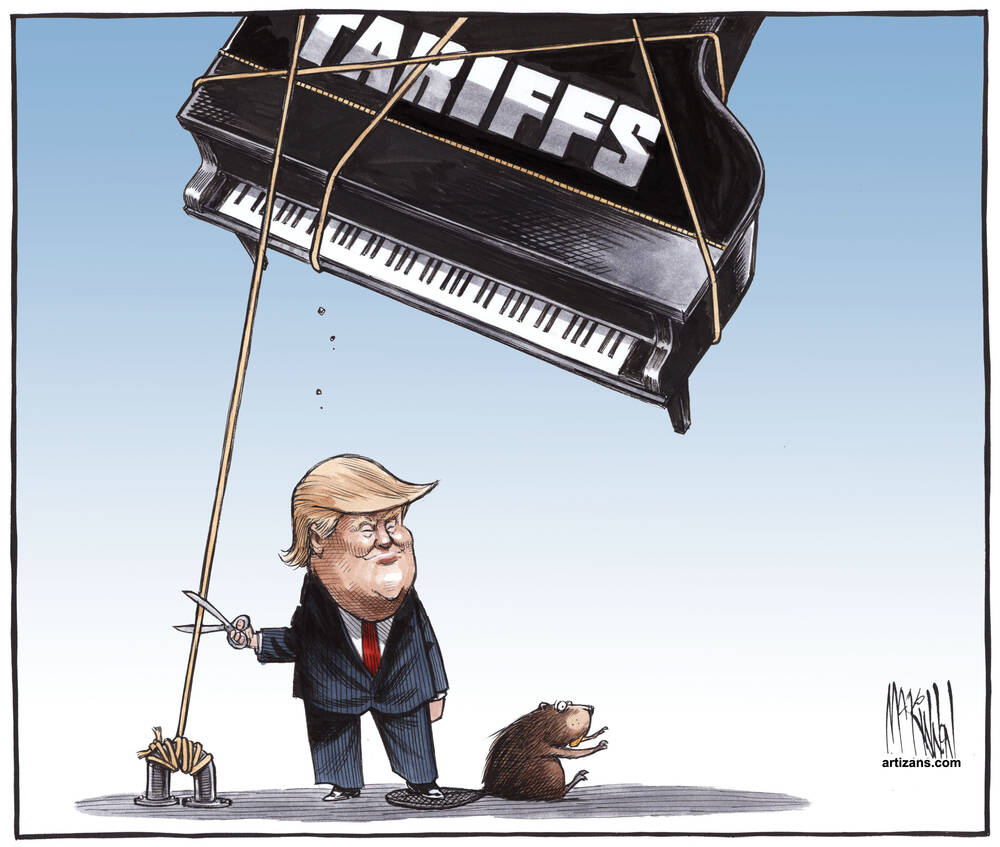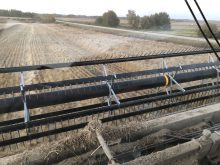At least this time, when agriculture woke up to the threat of a new trade policy that would decimate its market, it wasn’t alone.
A 25 per cent tariff against Canadian goods, as threatened by U.S. President-elect Donald Trump, was the talk of every industry in the last week of November.
Ag sector reaction, as noted in our main story this week, cited exactly how closely Canada and the U.S. are linked. In Manitoba alone, the U.S. takes almost half our agriculture and agri-food exports. In 2023, that equated to about $4.53 billion.
Read Also

Bug farming has a scaling problem
Why hasn’t bug farming scaled despite huge investment and subsidies? A look at the technical, cost and market realities behind its struggle.
With threats like a blanket 10 per cent tariff on all goods coming into the U.S. and a 25 per cent tariff against Canadian and Mexican goods in particular, Trump is a poster child for trade wariness in Canada.
Results of the U.S. election have stirred an already volatile pot. Industries well remember Trump’s first term. It saw Canada’s biggest trade relationship on the ropes, tariffs flying back and forth and, since our economic systems are so linked, blow back from some trade fights that didn’t directly involve us at all.
In 2019, the Manitoba Pork Council noted how impacts from Trump’s campaign against China trickled back onto them. U.S. hog prices dropped in the course of that trade dispute and, where the U.S. price goes, so typically go prices in Canada. U.S. producers got federal support to take the sting out of their nation’s trade war. Manitoba farmers got no such relief.
Now Trump is back, and his trade stance hasn’t changed.
The fate of the free trade deal between Canada, the U.S. and Mexico is again going to be decided with Trump at the helm of the U.S., and the situation around CUSMA looks increasingly sticky. Industry immediately recognized that the deal’s 2026 scheduled review would be within Trump’s new term, and urged government to develop a strong ag strategy. One Canadian official later warned that review could come early.
That doesn’t even touch what the threatened blanket tariffs would mean for the deal. Canadians would be excused for asking how those kinds of tariffs could be on the table, given the existence of CUSMA. Would they not flout the agreement? Would Canada and Mexico not be within their rights to take up a formal challenge on the issue? Would the tariffs not kick off a trade war of mutual economic destruction?
That brings the question out of the realm of protectionism and into the philosophy of rules-based trade. Canada relies heavily on that social contract, but it only works if everyone is willing to play by the rules.
Complaint rulings under the WTO, or CUSMA, or the former NAFTA, come slowly and are often plagued by long appeals, only to emerge again in a new dispute a few years later. And while the negotiators battle it out, those in affected industries try to do business.
That’s when the system is working. If Canada is suddenly dealing with politicians and nations who aren’t fazed by potential consequences under the rules-based system, it becomes a whole different ball game.
Back in September, analysts from the Agri-Food Economic Systems Research warned that geopolitical factors are eating away at the rules-based trade system. The report from Al Mussell and Ted Bilyea noted that “there is a pattern of agri-food becoming the go-to target for trade retaliation, and for political tensions spilling over into agri-food trade.”
The two well-known policy analysts weren’t talking about the U.S. at the time. They were pointing to the shock that hit canola producers after China announced its anti-dumping probe.
The rules-based system is still a key part of Canada’s economic future, Mussell argued, but the nation also needs a “rapid pivot” to deal with, among other things, “a less friendly international trade environment not readily contained by the rules-based system.”
It’s not clear what that pivot should entail, but the current tone on trade from the U.S. suggests it’s time to give that question serious thought.















